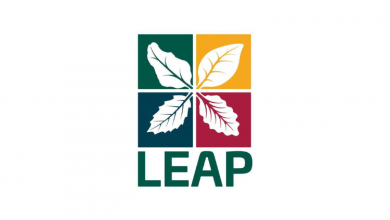Feeling sick? Be careful, strep infections in the Roanoke metro area on the rise, local officials say

Roanoke, Virginia – A strep, also known as Group A Streptococcus (GAS), is a type of bacteria that can cause a wide range of illnesses, ranging from mild skin infections to more serious conditions such as strep throat, scarlet fever, and invasive infections such as sepsis.
A strep is a highly contagious bacterium that can spread through contact with an infected person’s skin, throat, or nose. Symptoms of an A strep infection can vary depending on the type and severity of the illness, but can include fever, sore throat, swollen lymph nodes, and a rash.
Now, Roanoke City Alleghany Health Districts say that group A strep cases in the area are on the rise and they are closely monitoring the situation.
Dr. Cynthia Morrow, during a recent public health briefing, shed light on the wide-ranging consequences of Group A Streptococcus (GAS) infections. This pernicious bacterium is responsible for causing a gamut of ailments, ranging from the common strep throat and impetigo to more severe and invasive illnesses such as Toxic Shock Syndrome and necrotizing fasciitis – commonly referred to as flesh-eating bacteria.
While the manifestations of GAS infections can vary greatly, two key risk factors were identified for severe illness. These include a history of substance use disorder and the occurrence of minor injuries that compromise the integrity of the skin such as scrapes and burns. Vigilance in managing these risk factors is essential in preventing the onset of severe GAS infections that can result in significant morbidity and mortality.
“For skin wounds, we’re thinking about pain that is disproportionate to the wound, redness that is spreading, something called streaking where the wound is here, but you see a red line going up,” Dr. Morrow explained. “And of course, any fever would be something that we would be concerned about.”
Dr. Cynthia Morrow, the esteemed Health Director, divulged in a recent report that in the year 2022, the incidence of community-acquired Group A Streptococcus (GAS) infections was higher than the preceding year. Impressively, a total of 26 cases were documented, representing a surge from 2021’s total of 15. Of these cases, a significant number (10) were found to be linked to skin infections, while an equal number were identified in individuals with substance use disorders.
It is worth noting that previous years saw higher GAS case numbers, but they were largely confined to long-term care facilities. In contrast, the cases in 2022 appear to have a more far-reaching impact. Notably, Dr. Morrow’s team has already recorded six cases of GAS infections in January of this year, with data for February forthcoming. Therefore, it is imperative to remain vigilant and proactive in preventing and treating GAS infections, especially in light of the recent upsurge.
“One of the things that sometimes happens with invasive group A strep is that someone might start with a viral syndrome. So maybe they have a cold or influenza. And then instead of getting better, they get worse,” Dr. Morrow explained. “So typically, if you have a viral infection, it’s gonna get better after three, four or five days, if suddenly you’re on the mend… and things get worse, that’s something to call your doctor about to call your healthcare provider about.”
The Health District is determined to raise awareness about the recent increase in Group A Streptococcus (GAS) cases. In this regard, Dr. Morrow has made a fervent appeal to the public to seek medical attention promptly upon detecting symptoms, particularly those linked to skin infections. The message is clear: timely medical intervention is critical to managing and treating GAS infections. By being vigilant and proactive, we can work towards mitigating the spread of this potentially serious illness.
“The most important thing about group A strep is it’s a bacterial infection, and we’ve got great antibiotics to counter it to treat it,” she explained. “So it is treatable if it’s identified early on.”
Dr. Cynthia Morrow, an accomplished medical expert, emphasized the crucial role of maintaining proper hand hygiene as a preventive measure against Group A Streptococcus (GAS) and its invasive forms. Moreover, she advised the public to be diligent in cleaning and treating skin wounds appropriately to minimize the risk of developing GAS infections. These measures can significantly reduce the likelihood of contracting this potentially life-threatening illness, and it is imperative to incorporate them into one’s daily routine to ensure maximum protection.
Treatment for A strep infections typically involves antibiotics to kill the bacteria, and in some cases, supportive care such as rest and hydration. It is important to seek medical attention if you suspect you may have an A strep infection, as it can lead to serious complications if left untreated.
Recent news articles have highlighted the potential for A strep infections to become more common as a result of the COVID-19 pandemic, due to increased transmission and weakened immune systems in some individuals. It is important for individuals to take precautions to prevent the spread of A strep, such as practicing good hygiene and seeking medical attention if symptoms develop.




